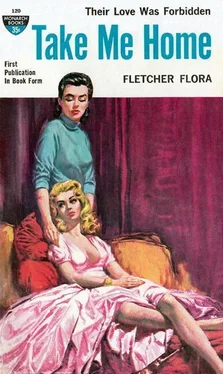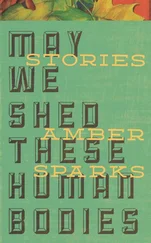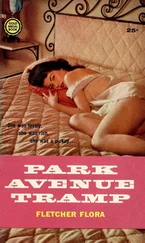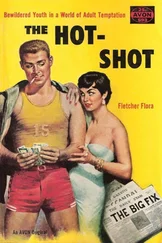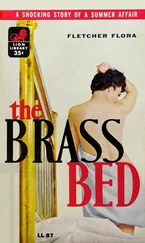Флетчер Флора - Take Me Home
Здесь есть возможность читать онлайн «Флетчер Флора - Take Me Home» весь текст электронной книги совершенно бесплатно (целиком полную версию без сокращений). В некоторых случаях можно слушать аудио, скачать через торрент в формате fb2 и присутствует краткое содержание. Город: New York, Год выпуска: 1959, Издательство: Monarch, Жанр: Эротические любовные романы, на английском языке. Описание произведения, (предисловие) а так же отзывы посетителей доступны на портале библиотеки ЛибКат.
- Название:Take Me Home
- Автор:
- Издательство:Monarch
- Жанр:
- Год:1959
- Город:New York
- ISBN:нет данных
- Рейтинг книги:4 / 5. Голосов: 1
-
Избранное:Добавить в избранное
- Отзывы:
-
Ваша оценка:
- 80
- 1
- 2
- 3
- 4
- 5
Take Me Home: краткое содержание, описание и аннотация
Предлагаем к чтению аннотацию, описание, краткое содержание или предисловие (зависит от того, что написал сам автор книги «Take Me Home»). Если вы не нашли необходимую информацию о книге — напишите в комментариях, мы постараемся отыскать её.
Take Me Home — читать онлайн бесплатно полную книгу (весь текст) целиком
Ниже представлен текст книги, разбитый по страницам. Система сохранения места последней прочитанной страницы, позволяет с удобством читать онлайн бесплатно книгу «Take Me Home», без необходимости каждый раз заново искать на чём Вы остановились. Поставьте закладку, и сможете в любой момент перейти на страницу, на которой закончили чтение.
Интервал:
Закладка:
“Good evening,” he said.
“Good evening,” she said. “I think I shall have a double manhattan, if you please.”
Double. She had said double promptly and quite naturally, without thinking about it. From a cheap cut of steak to a double manhattan was a long way in terms of economy, but the inconsistency in this was more apparent than real, and there was definitely an underlying sense and purpose in it, although she couldn’t immediately isolate it. The bartender brought her double manhattan and left her with it, and an incredibly short time later, lifting her glass, she discovered that it was empty. This would not do. It simply would not do. It was all right to allow oneself a drink, especially if it contributed to survival in a period of time, but such careless extravagances as this was another thing entirely. She had intended to nurse the double manhattan, to make it last, but she had gulped it down at once instead, and now she would have to leave or buy another.
The prospect of leaving being intolerable, there was only one thing to do, and she beckoned to the bartender, who returned, and ordered another double manhattan. With this one, however, she would mind what she was doing. She would drink slowly, in sips, with attention to time. Having made this resolution, she no longer regretted having drunk the first one quickly, for the result had been beneficial. It had increased her sense of compatibility, the capacity to cope, and had given her the beginning of a feeling of pleasurable excitement.
“Excuse me,” she said to the bartender. “Would you mind very much if I were to ask you a question?”
“Not at all, lady,” he said. “I gets lots of them.”
“I was wondering if you were once a prize fighter or a wrestler.”
“Both. I was a fighter first and a wrestler later.”
“Did you prefer wrestling to prize fighting?”
“No. I prefer bartending to either.”
“Really? That’s very interesting. Why did you quit prize fighting for wrestling if you didn’t prefer to wrestle?”
“I quit fighting because I wasn’t any good at it. I kept getting my brains beat out. Wrestling wasn’t as tough on a guy. It was all rigged, you see. Just a show. It was always decided in advance who would win.”
“Is that so? Were you allowed to win often?”
“Not often. The way it is, you got a hero and a villain. I was always the villain.”
“You don’t look like a villain to me. In my opinion, you look like a perfect gentleman.”
“As a bartender, I’m expected to look like a gentleman. As a wrestler, I wasn’t. I made a pretty fair villain, if I do say so myself.”
“Then how did you happen to quit wrestling for bartending?”
“I got too old. Too slow and brittle. One night In Dallas a Swede named Igor the Golden accidentally broke my arm. He was the hero and was supposed to win, but he wasn’t supposed to break my arm. It wasn’t his fault, though. It was all arranged, but I was too slow in shifting my weight in the right direction at the right time. In giving with the hold, you know.”
“I see. I’m sorry your arm was broken, but if you prefer tending bar, as you say, it has all worked out Jill right in the end.”
“Yes. It’s all worked out all right.”
He went away, and she sat nursing her double, but soon he was back to serve a customer who had taken the stool next to Ivy, on her left. The new customer was a man. Ivy knew this by the smell of him, even before she had heard his voice or had seen, looking down at a sharp angle from under lowered lids, a worsted knee against the wall of the bar. He ordered a rye on the rocks in a voice that had a trace of an accent, and she tried to identify the accent, whether it was foreign or sectional or one modified by the other, but she couldn’t even be certain that he had an accent at all. Neither could she get a clue from his appearance, which she examined covertly in the mirror over the backbar. He had a narrow face with a scar diagonally across his chin, and although she could not tell in the shadowy mirror, she had an idea that his eyes must be pale blue. The assumption of pale eyes was based, perhaps, on the observable fact of pale hair. He wore a soft hat, but it was pushed so far back on his head that she could see the hair brushed flatly across the front part of his skull. There was, she thought, a peculiar quality in this particular man, something that made him exceptional among other men, but she was no more successful in identifying this quality than she had been in identifying the accent, if any, and she did not learn until later, too late, that it was the quality of danger, the elusive essence of a dangerous man.
“What’s your opinion?” he said suddenly in the voice that might have had an accent.
“Were you speaking to me?” she said.
“You were watching me in the mirror, weren’t you? What’s your opinion?”
“Was I watching you? Excuse me. I really wasn’t paying the slightest attention to what I was doing. I was thinking of something else.”
“I’m disappointed.”
“Are you? I don’t see why you should be.”
“It’s always pleasant to be looked over by a good-looking woman, provided the impression is favorable. My mistake, however. And my apologies. Are you waiting for someone?”
“No.”
“In that case, may I buy you a drink?”
“I already have a drink.”
“It won’t last forever.”
That was true, she thought. Even with the most careful nursing, the double manhattan wouldn’t last forever, and it would be nice, when it was finished, to have another. Surely there was nothing wrong in allowing a man to buy her a drink, or even several drinks, in a bar that was a sanctuary that she did not want to leave. It was, in fact, kind and considerate of him to offer, and would be a rudeness on her part to refuse.
“Perhaps I’ll be ready for another by the time it comes,” she said.
“If you aren’t,” he said, “it won’t spoil.”
No longer under the necessity of nursing, she drank her manhattan quickly, and he kept her company in rye. Ii the meanwhile, he had given the signal for duplicates, which were supplied by the attractive bartender with the twisted nose and thick ear.
“My name is Neal,” he said. “Charles Neal. My friends call me Chick.”
“How do you do, Mr. Neal,” she said formally. “My name is Ivy Galvin.”
“Oh, come on. Be my friend.”
“I don’t know. It was nice of you to buy me a drink, and I’m prepared to be friendly for it, but I don’t believe I could call you Chick.”
“Why not?”
“As a name, I don’t like it. Does that offend you? I don’t want to be offensive.”
He stared at her with his pale, shallow eyes and thought that she was certainly tight, probably a nut, and altogether something nice and easy to be had for the night.
“I’m not offended.”
“I’m willing to call you Charles, however. Is that satisfactory?”
“Sure. Call me Charles. I haven’t been called Charles since my old man ran me away from home.”
“Were you run away from home? I was too, in a way. Not exactly, but in a way. It gives us something in common.”
“Maybe we can find other things in common. Let’s work at it.”
She lost track of the number of manhattans she drank and the length of time she was in the bar, but there were quite a few over a period of quite a while, and in this period, while the manhattans were being drunk, she was aware of the pressure of a knee and the sly and tentative explorations of a hand, the knee and the hand being the property of Charles Neal, whom she could not bring herself to call Chick. She tolerated his trespasses, which were minor, for the sake of the manhattans, which were sustaining, and in fact she was proud of herself for the really competent way in which she was getting along in a strange situation that would once have terrified her, and it just showed again that she could get along quite well in any situation whatever if she only had the confidence.
Читать дальшеИнтервал:
Закладка:
Похожие книги на «Take Me Home»
Представляем Вашему вниманию похожие книги на «Take Me Home» списком для выбора. Мы отобрали схожую по названию и смыслу литературу в надежде предоставить читателям больше вариантов отыскать новые, интересные, ещё непрочитанные произведения.
Обсуждение, отзывы о книге «Take Me Home» и просто собственные мнения читателей. Оставьте ваши комментарии, напишите, что Вы думаете о произведении, его смысле или главных героях. Укажите что конкретно понравилось, а что нет, и почему Вы так считаете.
